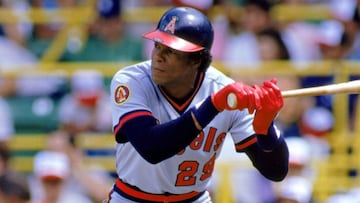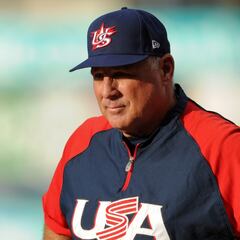Hall of Famer Rod Carew becomes US citizen at age 78
The legendary Hall of Famer had the best reason in the world for waiting so long to take a US citizenship, and it makes you respect him even more.


Rod Carew, the man who terrorized pitchers with a bat in his hands, stood tall with a smile on his face, right hand raised, as he officially became a U.S. citizen. At 78 years old, the Hall of Famer took the oath in a small, intimate ceremony at the U.S. Citizenship and Immigration Services office in Santa Ana. A crowd of about 20, made up of family, friends, and a few old teammates, gathered to watch the latest milestone in a life full of them.
Born on a train in the Canal Zone of Panama, Carew’s journey to this moment has been anything but typical. He arrived in New York City as a teenager, and from there, his baseball career took off like a shot. He started with the Minnesota Twins in 1964 and later played for the California Angels, where he wrapped up his remarkable career. But despite his decades in the States, Carew had waited until now to take the step toward citizenship.
“Everyone in my family got their citizenship years ago,” Carew admitted with a grin. “I was the only one holding out. They kept asking me, ‘When are you going to do it?’ I guess I just kept it quiet for so long, no one even thought to ask if I was a citizen.” Now, with his new status, he’s looking forward to enjoying the full range of opportunities that come with being an American in his retirement years.
Rod Carew became an American citizen today. Congrats to him pic.twitter.com/neXxmplnRr
— BaseballHistoryNut (@nut_history) August 23, 2024
So why the wait? For Carew, it wasn’t just about paperwork. He wanted to remain a symbol of what a kid from Panama could achieve, and he felt that holding on to his Panamanian citizenship was a part of that. His story, after all, has been a beacon for many back home - a boy who used a broomstick and bottle caps for baseball practice and grew up to become one of the greatest hitters the game has ever seen.
Carew never played organized ball in high school, which makes his rise all the more impressive. It was during his time on a semi-pro team that he caught the eye of the Twins. Signed as an amateur free agent in 1964, he made an immediate impact, taking home the AL Rookie of the Year award with a .292 batting average and a spot on the All-Star team. From there, his career was a relentless march toward greatness.
He dipped slightly in his sophomore season, hitting .273, but that would be the last time in 15 years that his average would drop below .300. The 1970s were his playground, with four consecutive batting titles and a near-miss on a fifth. His first title came in 1969 when he hit .332 and led the Twins to an AL West championship. Fellow players knew there was no easy way to get him out. “He has no weakness as a hitter,” legendary pitcher Jim Catfish Hunter once said. “Anything you throw, he can handle.”
Congratulations to @RodCarew_29 on officially becoming a United States Citizen today! pic.twitter.com/JRqeoY6rdb
— Minnesota Twins (@Twins) August 23, 2024
1977 was a year for the ages. Carew flirted with the elusive .400 mark for much of the season, ultimately finishing with a .388 average and claiming the AL MVP award. By 1979, he had seven batting titles under his belt, cementing his status as one of the best ever. The Twins were home from 1967 to 1978, then the Angels until he hung up his cleats in 1985.
Off the field, Carew’s impact has been just as powerful. He’s raised significant funds for pediatric cancer research and served in the U.S. Marine Corps. It’s no surprise that during Friday’s ceremony, when asked if he planned to exercise his newfound right to vote, Carew responded with a resounding “Yes.”
Related stories
“I’ve been waiting for this for a long time,” he said, the pride evident in his voice. “I want to be part of the great things this country has given us. Any way I can help, I’m willing to help. I came here when I was a kid. I’ve lived my whole life in this country. It has given me nothing but good health and good fortune.”
Rod Carew has always been a man of action - whether with a bat in his hands or a cause in his heart. Now, as a U.S. citizen, he’s ready for whatever comes next.


Complete your personal details to comment